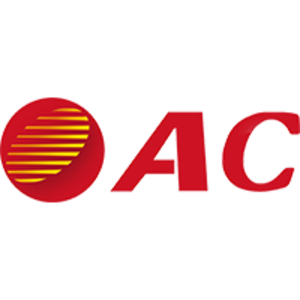LANGUAGE↓

News & Policies

Supreme Court Issues Some Opinion Concerning the Application of the Company Law
The Supreme People’s Court issued “The Provisions of the Supreme People’s Court on Several Issues Concerning the Application of the Company Law of the People’s Republic of China (V)” on 28th April 2019. The purpose of this provision is to protect the rights of shareholders, especially for the small and medium shareholders. AC finds the below points:
• With respect to the damage to a company’s interests by related-party transactions, if the plaintiff company requests the controlling shareholder, actual controller, director, supervisor or senior officer to pay compensation for the losses incurred according to Article 21 of the Company Law and the defendant only makes its defense on the grounds that it has performed the duty of information disclosure, it has obtained the consent of the board of shareholders or the general meeting, or it has completed other procedures required by laws, administrative regulations or articles of association, such defense will not be supported by the people’s court.
If the company does not initiate a legal action, the shareholders that meet the conditions specified in Paragraph 1 of Article 151 of the Company Law may initiate a legal action in the people’s court in accordance with Paragraphs 2 and 3 of Article 151 of the Company Law.
• If anything in the contract on related-party transactions is invalid or revocable and the company does not initiate a legal action against the counterparty thereto, the shareholders that meet the conditions specified in Paragraph 1 of Article 151 of the Company Law may initiate a legal action in the people’s court in accordance with Paragraphs 2 and 3 of Article 151 of the Company Law.
• Where a director is removed from his post through an effective resolution made by the board of shareholders or general meeting before expiry of his term of office and he claims that the said removal shall have no legal effect, such claim will not be supported by the people’s court.
After a director is removed from his post, if any dispute arises between the company and the director due to compensation and a legal action is therefore initiated, the people’s court shall determine whether compensation should be paid, as well as the reasonable amount of compensation, in accordance with laws, administrative regulations and articles of association, or the terms of the contract, and in consideration of such factors as the reasons for removal, the term of office remaining and the director’s remuneration.
• After a resolution is passed by the board of shareholders or general meeting regarding profit distribution, the company shall distribute the profits within the time limit expressly stated in the resolution. If no time limit is specified in the resolution, the provisions in the articles of association shall prevail. If no time limit is specified in both the resolution and the articles of association, or if the time limit lasts for more than one year, the company shall distribute the profits within one year from the date when the resolution is passed.
If the time limit for profit distribution specified in the resolution exceeds that in the articles of association, shareholders may request the people’s court to revoke the provisions regarding the said time limit in the resolution according to Paragraph 2 of Article 22 of the Company Law.
• When hearing a case involving a major difference among the shareholders of a limited liability company, the people’s court shall pay attention to mediation.
If the dispute is resolved in any of the following ways upon negotiation between the parties concerned without violating any mandatory provisions in laws and administrative regulations, the people’s court shall support the said resolution.
* The company repurchases the shares of some shareholders;
* Some shareholders transfer their shares to other shareholders;
* Some shareholders transfer their shares to other parties;
* The company reduces its registered capital;
* The company is divided;
* Other ways through which the company resolves the dispute and resumes normal operation without being dissolved.
These Provisions shall become effective from April 29, 2019.
These Provisions shall be applicable to cases that have not undergone final judgment before the effectiveness hereof and shall not be applicable to cases that have undergone final judgment before the effectiveness hereof, or cases eligible for retrial through the trial supervision procedure.





